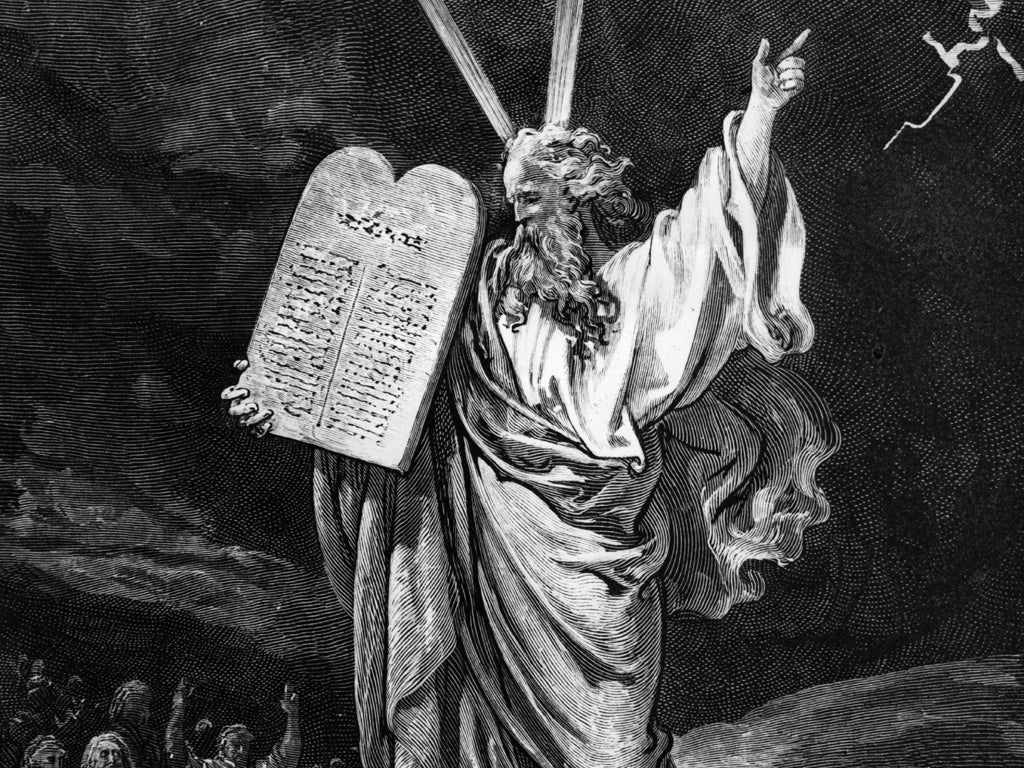Reflections on Yom Kippur: The importance of admitting that people make mistakes
That's the one thing all religions have in common

According to biblical tradition, when Moses descended Mount Sinai to find his people had built and deified a golden calf, he shattered the Ten Commandments in anger.
Today, on Yom Kippur, the Day of Atonement, Jewish people all around the world will be fasting and praying to God to forgive their sins, just as they did when they built the calf. It is the most sacred day for Jews who use this High Holy Day for reflection and repentance.
It's also the forty-year-anniversary of the Yom Kippur War/ Ramadan War/ October War or the 1973 Arab-Israeli War – depending where you draw the lines.
I believe there are lessons in all religions that can be learnt by everyone. The one thing they all have in common is admitting that people make mistakes. That’s why they put precautions in place – Catholics have confession, Hindus, Sikhs and Buddhists have their karma and Muslims will have their Day of Judgement.
But amidst the raging arguments of war and peace, factionalism, secularism, atheism and whatever other ‘-ism’ you like, this year, on a particularly poignant anniversary Yom Kippur, we should expand upon the concept of religious forgiveness. Let’s include the atheists and agnostics, Jedi knights and witches. We should indulge in a little panoramic introspection. Can we forgive ourselves this past year? What have we done, and more importantly, not done that we regret?
As Edmund Burke said: “All that is necessary for evil to triumph is for good men to do nothing.”
Amongst the worldwide atrocities - the wars raging in the East, corrupt governments, innocent deaths - we should be focusing on the people who offer solutions instead of critiques and actualise change through kind and courageous actions. We should revitalise religion and inject it with a healthy shock of modernity by applying biblical notions to the modern day.
These days, seas don’t tend to split and planets don’t tend to flood – but the one timeless truism that you can bet on – religious or not - is that people make mistakes.
But religious repentance has a negative stereotype: Dawkins-esque God or Gods scornfully dishing out various banishments and death warrants. However, repentance is the most positive and progressive action a person can take. It takes guts to admit you were wrong, but it’s braver to promise yourself you’ll do it differently next time.
Since the Israelites atoned for their idolatry, God rewarded them with a second set of tablets. Forgiveness from God may be esoteric, but forgiveness from your own consciousness applies directly to you. What makes a bystander stand by? Is feeling powerless a reason or an excuse?
Before the heavenly books open for God to take his giant quill and inscribe who will be a good little boy or girl next year, Jews have had a final chance to amend their wrongs against others. Yom Kippur seals God’s verdict for the year ahead.
The Israelites built the golden calf en route from their Egyptian exodus. Today, there are many people living in exodus, in refugee camps, in slums, on the streets, in sorrow and with guilt. Today is a rare moment, when we’re not plugged in or tuned out to think about what we have or haven’t done (call them sins, if you like), but most importantly, it’s an opportunity to think about what we can do in the future and try to make next year a better year.
After all, it is confession, not the priest that gives us absolution.
Join our commenting forum
Join thought-provoking conversations, follow other Independent readers and see their replies
Comments
Bookmark popover
Removed from bookmarks